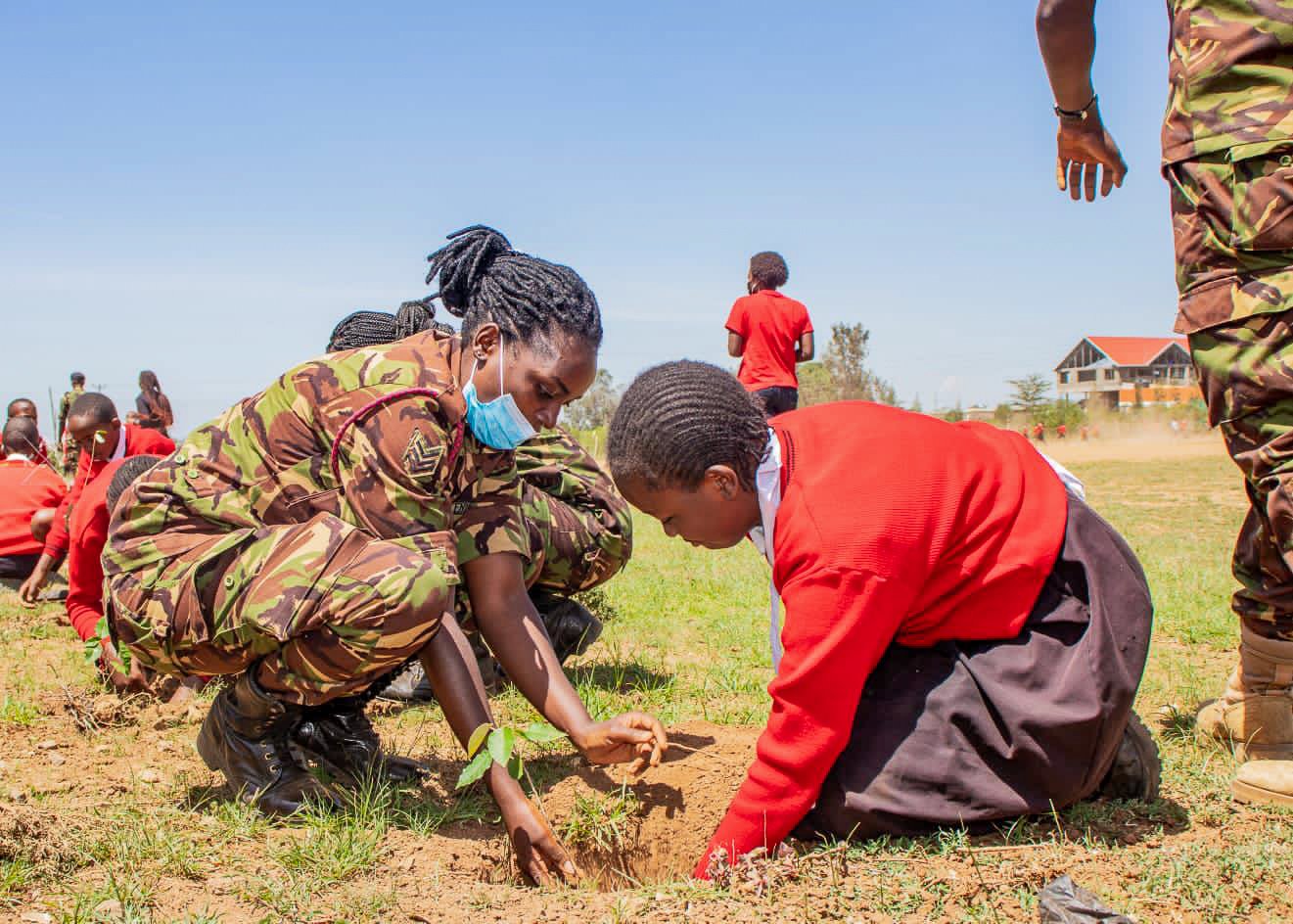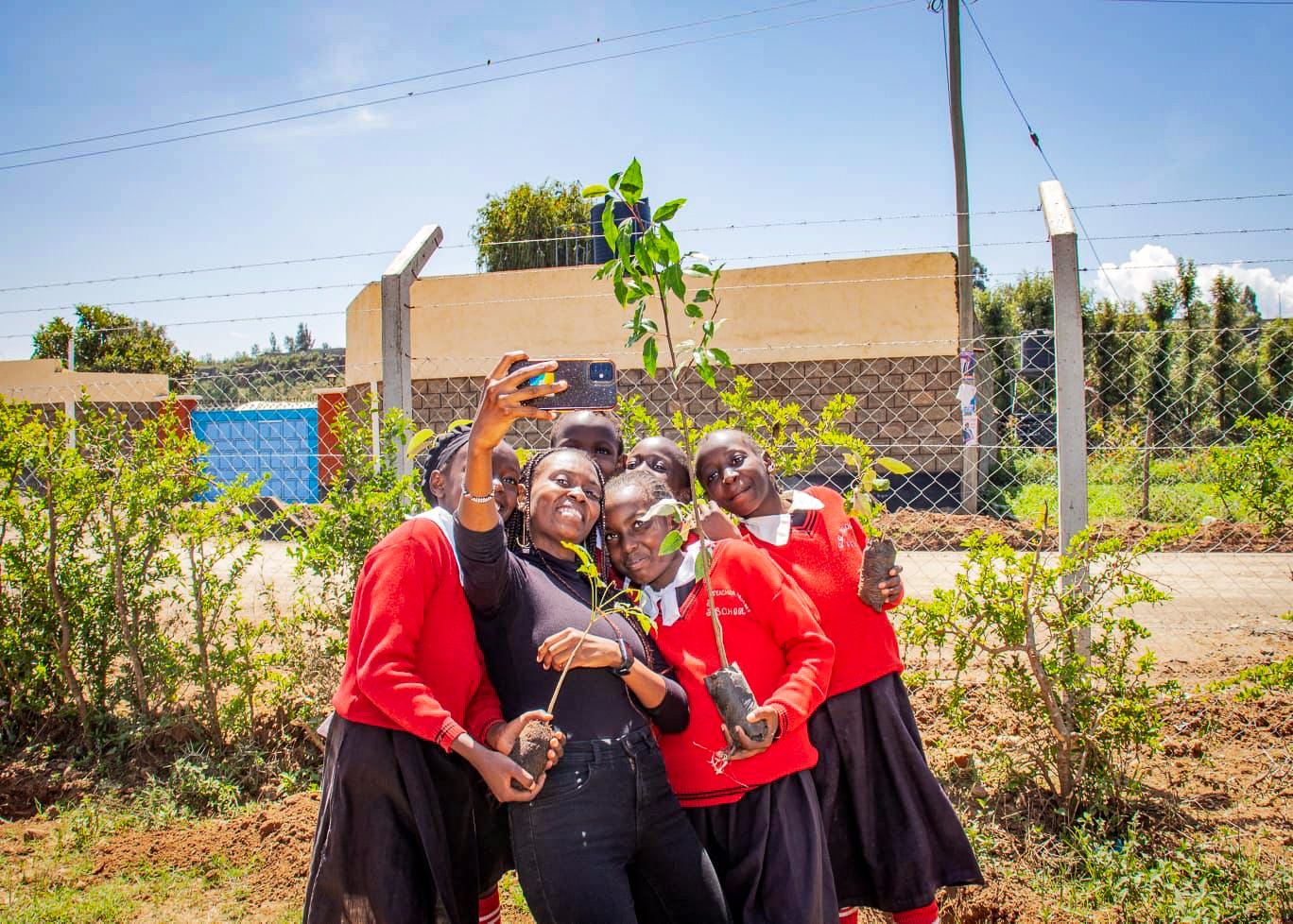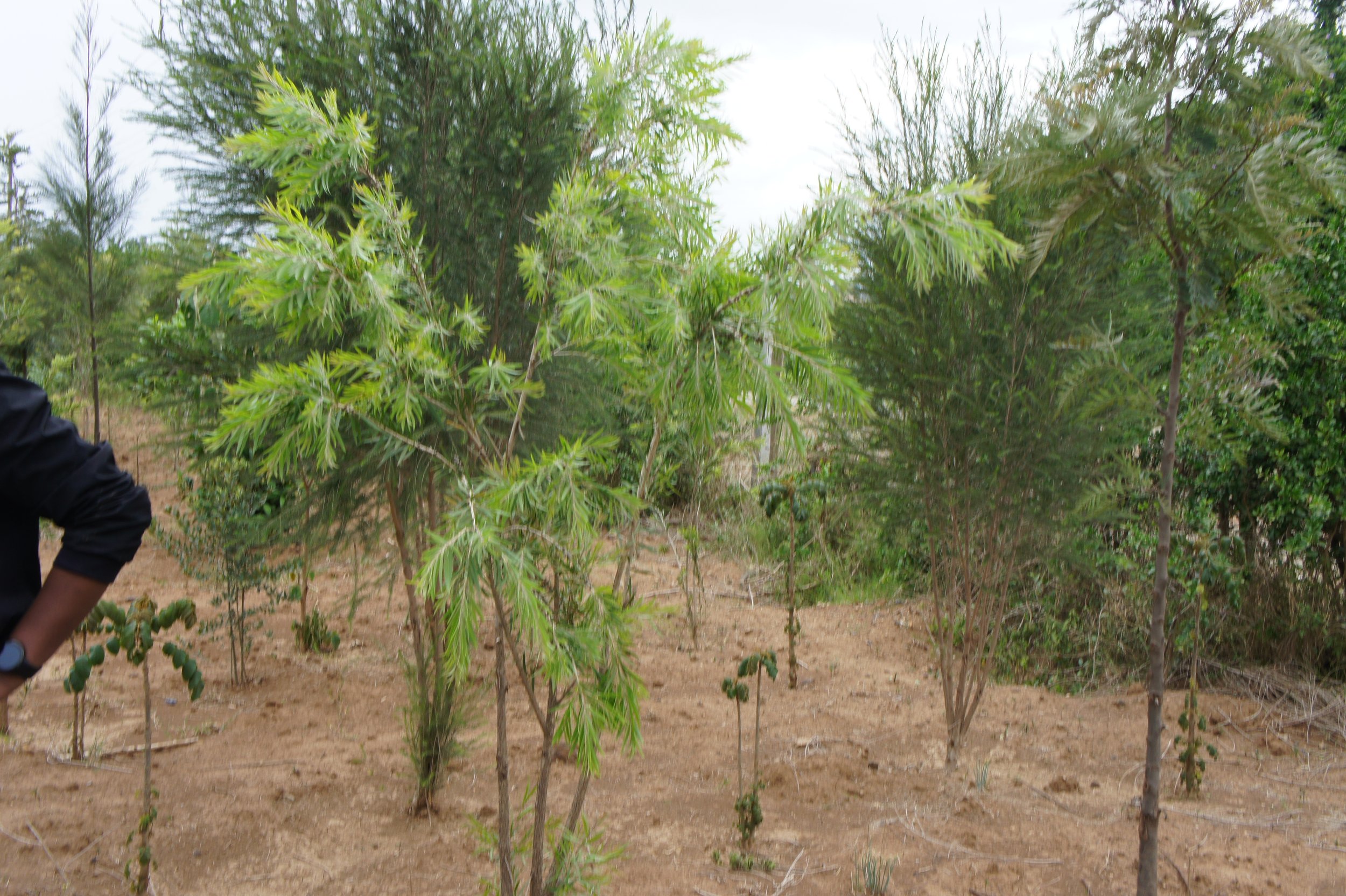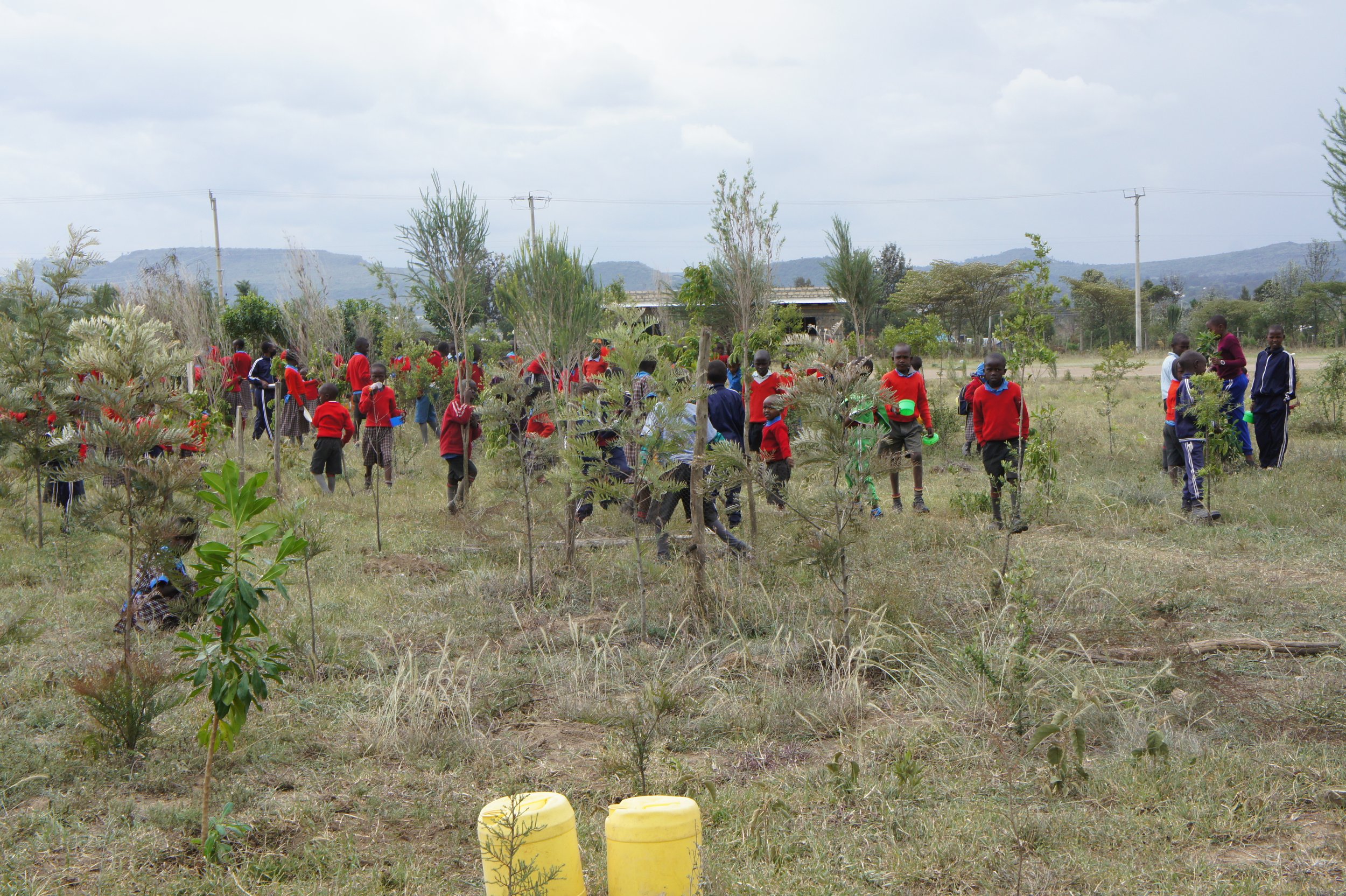Trees challenge 2022
In Kenya, we’re working in partnership with Globe Gone Green to plant 30,200 trees with students from 23 schools across Nakuru County.
Gilgil, Nakuru County, is classified as an ASAL(Arid and Semi-Arid Land). This means that, this landscape is more prone to drought and water shortages due to low rainfall levels and high temperatures, affecting the wellbeing of the wider community.
Due to climate change, Kenya continues to experience delayed and erratic rainfall patterns.
That’s why we’re planting trees to restore this degraded landscape, to reduce the risk of droughts and encourage consistent rainfall in the region.
We’re also planting trees in schools to foster a love of trees and the environment amongst young people. Because, engaging younger generations in environmental protection is key to securing their future and that of the planet.
The wider community is involved too. We’re planting fruit trees such as avocados and oranges with the local community for improved livelihoods.
ITF Africa Programmes Manager, Wycliffe Matika, during a school tree planting event.
Adopt-a-tree
Students involved in the project will get to ‘adopt’ a tree or two which they will water and tend to until they are done with their studies, or move schools.
They will not do this alone, they will have the support of their classmates and guidance from their teachers and the Globe Gone Green team.
Green Award
At the end of the year, a Green Award and certificates of recognition will be awarded to the schools with the highest survival rate of trees as well as for those trees that are well grown and taken care of.
Benefits of the project
Students will get to learn basic skills in environmental conservation, tree planting and care.
Students learn about different types of tree species and how they are used to benefit the wider community.
Creation of green spaces in schools through planting trees that break wind, provide shade and spaces for students, teachers to sit, read and relax.
Increased tree cover, improved biodiversity and wellbeing through inclusion of fruit tree planting.
So far, 6,000 trees have been planted
These trees were planted during the delayed March/April rains which came in late April and more will be planted later in the year with the next rainy season being October/November.
We have also installed two water storage tanks in one of the schools and one in the local community. These tanks will be useful particularly during the dry season when watering tree saplings and seedlings in the tree nurseries.
Donate today
Support communities on the front lines of the climate crisis to plant trees, restore ecosystems and improve their livelihoods.








